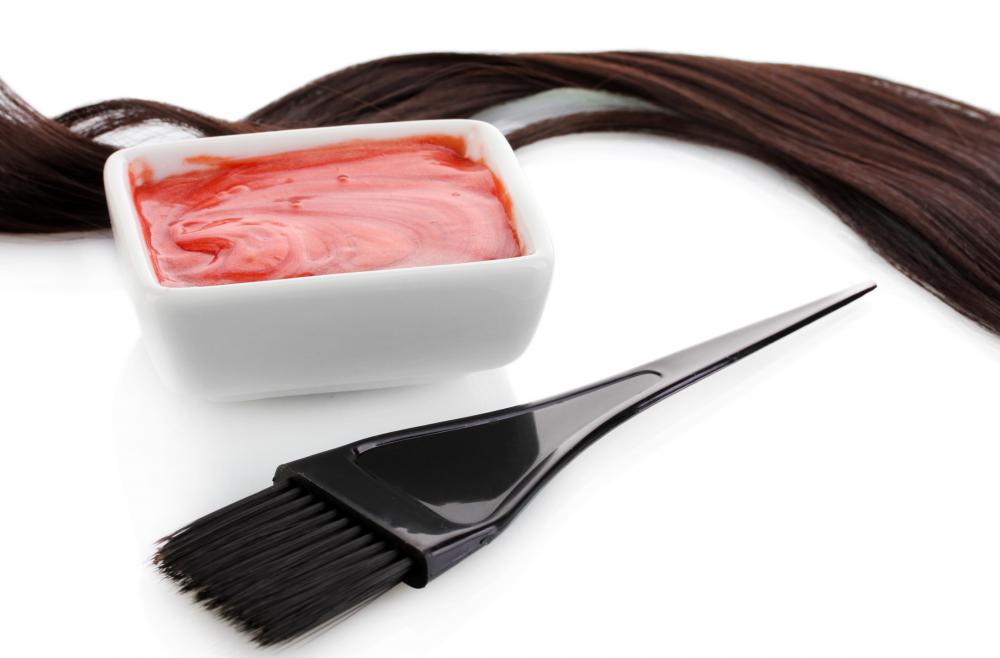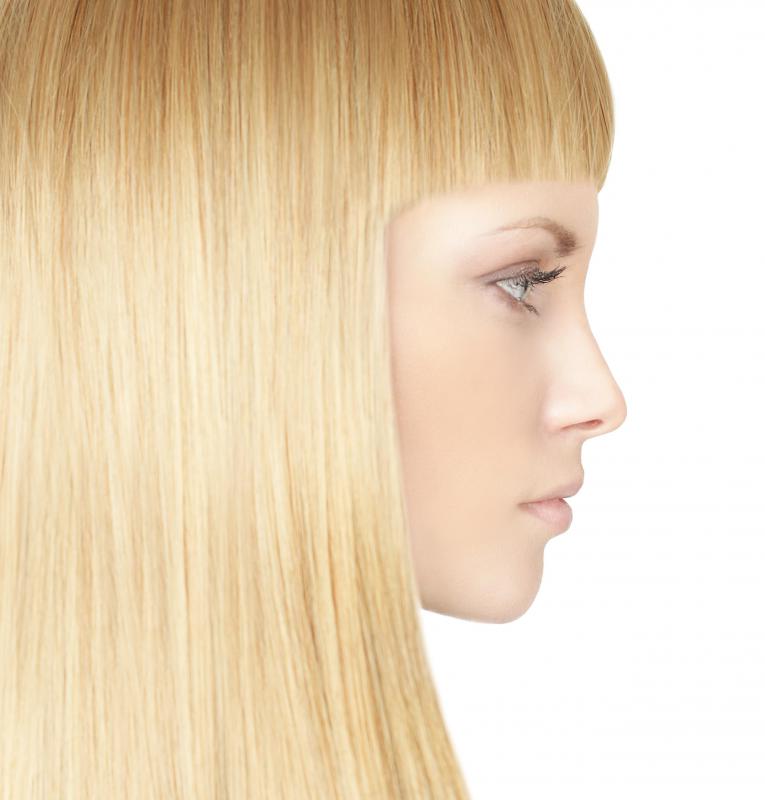At BeautyAnswered, we're committed to delivering accurate, trustworthy information. Our expert-authored content is rigorously fact-checked and sourced from credible authorities. Discover how we uphold the highest standards in providing you with reliable knowledge.
What Does a Hair Color Specialist Do?
When some people age, their hair either gets darker, changes shades or begins to turn gray, and they choose to fight nature and color their hair. There are several coloring techniques and many terms for these types of procedures, such as dyeing, coloring and bleaching. In order to achieve the most natural look, most people who opt to change their hair color go to professional color specialists to do so. A hair color specialist has many duties, including customer consulting, mixing the hair color chemicals and applying the hair color products.
One of the most important roles of the color specialist is the customer consultation. Some beauty clients might want a hair color that does not complement their skin tone or facial features, and it is the professional color specialist's job to communicate the advantages and disadvantages of a potential hair color. For example, a fair-skinned woman with pinkish or bluish skin tones will not look good with golden blond hair. Shades of ash blond, however, will complement her skin. Another part of the consultation is letting the customer know how much maintenance is required — and how many times a month it must be done — if he or she chooses a hair color that is drastically different from the natural color.

The hair color specialist typically mixes and pours the actual hair color product as well. Some commercials for over-the-counter hair color advertise how quickly and easily it is to dye one’s own hair, but professional colorists typically mix and match several different colors together to create the perfect shade. The colors must be mixed with the proper amount of toner as well.

There are several techniques that a hair color specialist might use. One common method is the all-over hair coloring technique. This method typically is used when the customer is darkening his or her natural hair color. The colorist must prevent the hair color from dyeing the customer’s forehead and ears and must wear protective gloves.
Frosting is a technique that was very popular in the 1980s. In this method, the customer wears a plastic hood on his or her head, and the colorist uses a tool similar to a weaving needle to pull small strands of hair out of the hood. The hair color is applied to the external strands, and a plastic bag is placed over the hair.

One technique used by a hair color specialist to create a natural look is the highlight foiling method. The colorist uses a rat tail comb to select small sections of hair at a time. Light hair color product, usually incorporating a bleaching component, is applied to the section and then the entire section is wrapped up in foil. The process can take several hours, depending on how much hair is being highlighted and how thick the customer’s hair is. In all coloring techniques, the color specialist is responsible for timing how long the color product stays on the hair.

Depending on the size and type of the beauty salon, the hair color specialist might play many roles. For example, in expensive, upscale salons, the color specialist has only coloring responsibilities, and other staff members style, cut and even wash the clients’ hair. In small salons, the hair stylists might perform all of these duties as well as other jobs, such as waxing for hair removal or treating nails.
AS FEATURED ON:
AS FEATURED ON:















Discussion Comments
@raynbow- When it comes to choosing a hair color specialist, communication is the key regardless of the type of salon you choose. Tell your stylist exactly what you goals are and what color you want, and you should end up being happy with your results.
@raynbow- I can understand your concerns with choosing the best professional hair color specialist since you have never had your hair colored in a salon. But I don't think that the answer to your question is that one type of salon is better than another. A hair color specialist's skills come from education, experience, and talent in knowing how to mix color to give a client the best result based on his or her preferences and hair type.
I think that word of mouth is a great way to choose a hair color specialist. If you have friends or family members that recommend a particular stylist or salon, that is a good place to go to have your hair colored. You can also trust that salons that have been in business for a long time have stylists that know how to give good hair color results.
I have always colored my hair at home, but I would like to treat myself and have it done by a professional color specialist. Am I better off going to a high-end salon where I can get professional hair color applied by someone who only does this service, or will a basic stylist at any salon be able to give me the hair color results I want?
Post your comments